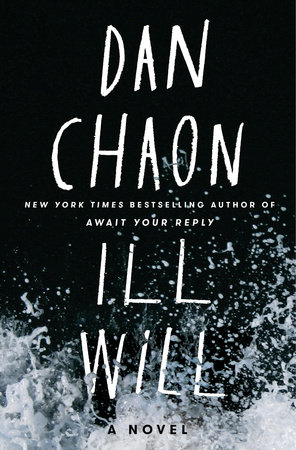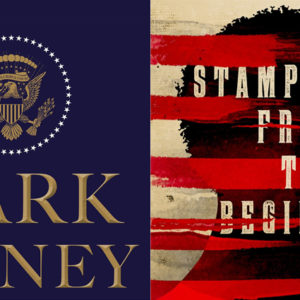
1
Sometime in the first days of November the body of the young man who had disappeared sank to the bottom of the river. Face-down, bumping lightly against the muddy bed below the flowing water, the body was probably carried for several miles—frowning with gentle surprise, arms held a little away from his sides, legs stiff.
The underwater plants ran their fronds along the feathered headdress the boy was wearing, across the boy’s forehead and war-paint stripes and lips, down across the fringed buckskin shirt and wolftooth necklace, across loincloth and deerskin leggings, tracing the feet in their moccasins. The fish and other scavengers were mostly asleep during this period. The body bumped against rocks and branches, scraped along gravel, but it was mostly preserved. In April, when the two freshman college girls saw the boy’s face under the thin layer of ice among the reeds and cattails at the edge of the old skating pond, they at first imagined the corpse was a discarded mannequin or a plastic Halloween mask. They were collecting pond water specimens for their biology course, and both of them were feeling scientific rather than superstitious, and one of the girls reached down and touched the face’s cheek with the eraser tip of her pencil.
* * * *
During this same period of months, November through April, Dustin Tillman had been drifting along his own trajectory. He was forty-one years old, married with two teenage sons, a psychologist with a small practice and formerly, he sometimes told people, some occasional forays into forensics. His life, he thought, was a collection of the usual stuff: driving to and from work, listening to the radio, checking and answering his steadily accumulating email, shopping at the supermarket, and watching select highly regarded shows on television and reading a few books that had been well reviewed and helping the boys with their homework, details that were—he was increasingly aware—units of measurement by which he was parceling out his life.
When his cousin Kate called him, later that week after the body was found, he was already feeling a lot of vague anxiety. He was having a hard time about his upcoming birthday, which, he realized, seemed like a very bourgeois and mundane thing to worry about. He had recently quit smoking, so there was that, too. Without nicotine, his brain seemed murky with circling, unfocused dread, and the world itself appeared somehow more unfriendly—emanating, he couldn’t help but think, a soft glow of ill will.
2
A few days after the body was discovered, Dustin picked up the phone and it was his cousin Kate calling from Los Angeles.
“Listen,” she said. “I have some very weird news.”
Dustin said: “Kate?” They spoke regularly enough, once every few months or so, but it was usually on birthdays or holidays or around the edges of holidays.
“It’s about Russell,” she said.
“Russell, my brother Russell?” He was sitting at the desk in his office, his “study,” as he liked to call it, on the third floor of the house, and he stopped typing on the computer and glanced over at his ashtray, which was now full of little sugar-free hard candies, lozenges wrapped in cellophane. “Don’t tell me,” Dustin said. “He’s escaped.”
“Just listen,” Kate said.
* * * *
Dustin hadn’t spoken to Russell, his adopted older brother, since Russell had been sent to prison. He had not written to him or even kept tabs on him, really, and the thoughts that he had of him were of the most cursory sort. For example, he’d see a movie or a TV show that took place in a prison and he’d think: I wonder what Russell is doing right now?
He had a general idea of what prison would be like. This included things like homosexual rape and “shanks” carved out of toothbrushes or spoons. Sometimes he would picture men in the prison library, studying legal books, or in cafeterias, eating the terrible casseroles, or lying moodily, fully dressed, on metal bunk beds, glaring at the ceiling.
Various images of this sort had come to Dustin over the years.
But mostly he’d imagine Russell as he had been when they were growing up together—Russell, six years his elder, who had shot him once with a BB gun in the back while he was running away, Russell, listening to death-metal music and carving a pentagram into his forearm with the sharp end of a drafting compass, Russell, who had used improvised kung fu moves to destroy a magnificent snowman that Dustin had built, Russell, who was delighted by Dustin’s fear of the dark and would wait until Dustin was comfortably alone in a room and then sneak by and turn off the light and pull the door closed and Dustin, trapped in darkness, would let out a scream.
3
On the night that their parents were going to be murdered, Dustin Tillman and his cousins Kate and Wave were sitting at the kitchen table in the camper, which was parked for the moment in the driveway of Dustin’s family’s house in western Nebraska. It was the beginning of June, 1983.
Their two families were planning to leave the next morning to go on vacation together.
They would travel through Wyoming and up to Yellowstone, and they would stay at various campgrounds along the way.
But that night, the camper was like their own little private apartment that they were living in. The three of them were playing cards. A transistor radio emitted songs from a distant Denver rock-and-roll station. A heavy beetle-bodied June bug beat its wings and ticked thickly against the light fixture on the ceiling.
The girls were only seventeen, but they were splitting a light beer, which they had taken from the refrigerator in the camper. They had poured it—half and half—into two glass tumblers. The night was warm, and the girls were wearing their bikini tops and cutoff shorts. They had used a curling iron to make flips in their shoulder-length blond hair, but the flips had grown a little limp. They were twins, not identical but almost. Dustin was thirteen, and he sat there, his cards fanned out, and the girls said:
“Dust-Tin! It’s your turn!”
And Kate reached down and without thinking scratched a bug bite on her bare ankle and Dustin was looking surreptitiously, the way her fingernail made a white mark on the reddish tanned skin, the fingernail which had some polish on it that was flaking off.
From ILL WILL. Used with permission of Ballantine. Copyright © 2017 by Dan Chaon.


